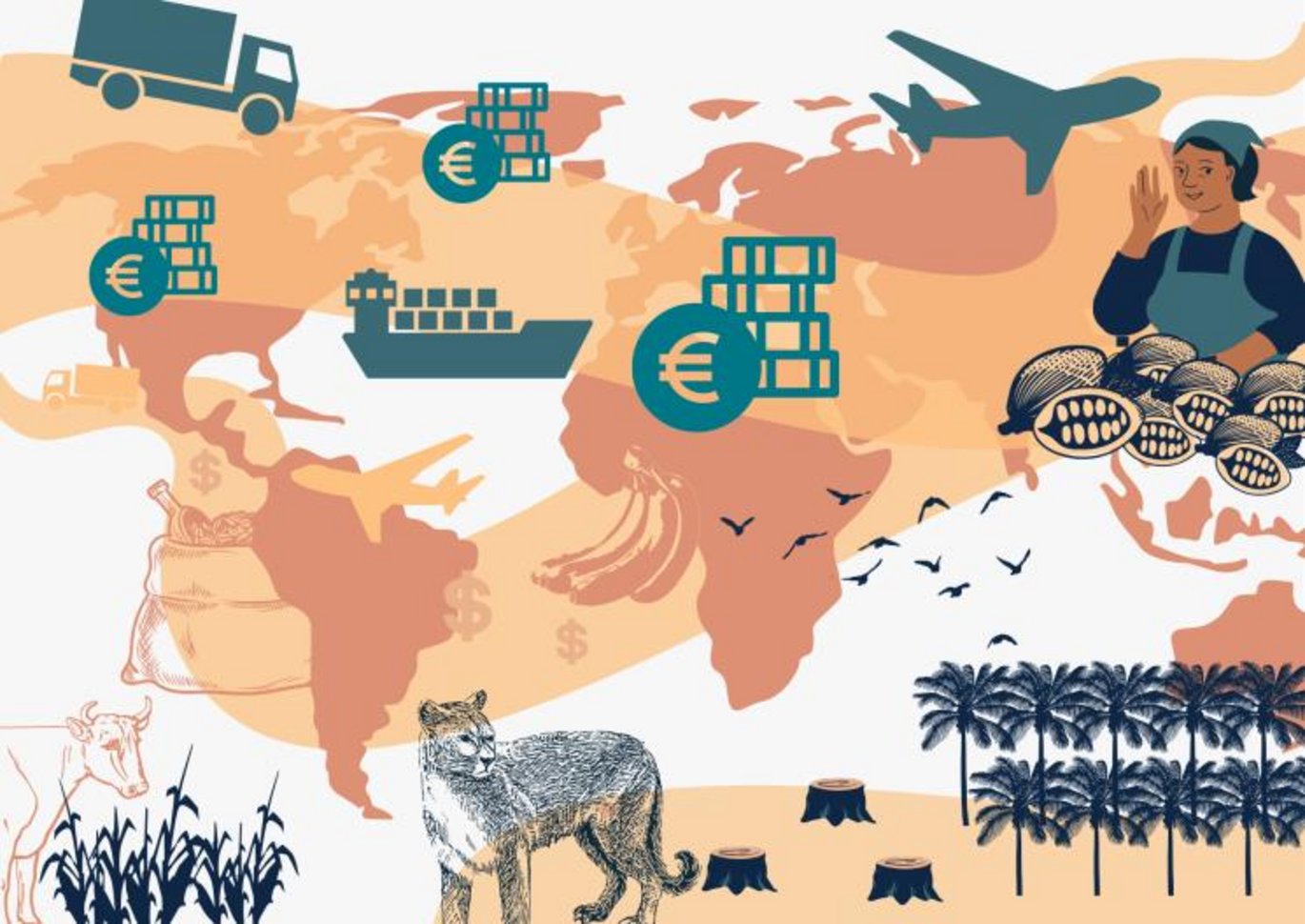PEER workshop: Who is doing What and Where on Biodiversity & Trade?
The goal of this first PEER workshop on biodiversity and trade is to map expertise and competences in the different institutions and identify opportunities to strengthen our joint capacities to produce policy-relevant knowledge on Europe’s biodiversity impacts outside Europe and support policies for targeting these impacts. Join us on 11th October 2022, 10:00-15:00 CET.

PEER workshop on biodiversity and trade, 11th October 2022, at 10-15 CET. Please join the workshop through this link:
Click here to join the meeting
PEER (www.peer.eu), a partnership of 8 European environmental centres, is exploring ways to combine forces with a joint strategy in environmental sciences and to enhance research on ecological sustainability. PEER member centres carry out basic and applied research combining different disciplines from natural and social sciences.
A specific task force on biodiversity has been setup to strengthen collaboration and develop a PEER hub of expertise with a focus on:
- Biodiversity & trade
- Biodiversity & health
- Nature protection &restoration
- Biodiversity monitoring
The goal of this first PEER workshop on biodiversity and trade is to map expertise and competences in the different institutions and identify opportunities to strengthen our joint capacities to produce policy-relevant knowledge on Europe’s biodiversity impacts outside Europe and support policies for targeting these impacts.
How
Understanding the negative and positive impacts on biodiversity of international trade - and the levers to mitigate negative impacts - is of paramount importance for reversing biodiversity loss. But many obstacles still remain to effectively understand and quantify such impacts as well as to respond to these challenges.
The objectives of the workshop are to identify PEER’s in-house competences related to work addressing the multiple dimensions and interlinkages between biodiversity and trade, and to establish connections across the network with the ultimate aim of fostering innovative interdisciplinary research and cross-cutting approaches in support of national and European policymakers, industry and society.
The workshop consists of short presentations by PEER researchers and experts pitching their work, intercepted by joint discussions on connections, synergies and gaps. At the end of the day, we engage in a facilitated joint discussion to address the main question of the workshop: what could we do better together than alone?
Programme
10:00 Welcome, opening of the workshop – Grégoire Dubois (KCBD-JRC) and Salla Rantala (SYKE)
10:05 PEER collaboration on biodiversity and trade – why? Brief introduction by Jeanne Nel (WUR)
10:20 Session 1: Data, indicators and knowledge needs in assessing the biodiversity impacts of international trade
Moderator: Salla Rantala (SYKE)
Speed presentations:
1. The IPBES Sustainable use assessment: the role of trade affecting sustainable use of wild species − Andries Richter (WUR)
2. Assessing loss of nature from tropical agriculture − Marine Robuchon, Grégoire Dubois, Andrea Andrici, Giacomo Delli, Luca Battistella, Andreas Brink, Itohan-Osa Abu, Zoltan Szantoi, Michael Thiel (KCBD-JRC)
3. Assessing invasive species arrival risk through global trade networks – Louise Barwell, Bethan Purse (UK-CEH), Daniel Chapman (University of Stirling)
Moderated discussion: what are the complementarities and connections between the approaches and work presented? What important gaps remain?
11:05 Short break
11:10 Session 2: Business environmental management perspectives: approaches and methods to assess biodiversity impacts of global value chains
Moderator: Julian Rode (UFZ)
Speed presentations:
1. Assessing biodiversity footprints for companies and products – Eric Arets (WUR)
2. Insights into the current development of reporting standards for transparency on biodiversity impacts and dependencies – Johannes Förster (UFZ)
3. Biodiversity and ecosystem services in business sustainability: Towards systematic, value chain-wide monitoring that aligns with public accounting – Dalia D’Amato-Pihlman (SYKE), Alessandra La Notte, Mattia Damiani, Serenella Sala (JRC)
Moderated discussion: what are the complementarities and connections between the approaches and work presented? What important gaps remain?
12:00 Lunch break
12:30 Session 3: Law, policy and governance to mitigate biodiversity impacts of international trade
Moderator: Jeanne Nel (WUR)
Speed presentations:
1. Upcoming regulatory reforms on business and biodiversity: creating efficient sanctions – Anu Lähteenmäki-Uutela (SYKE)
2. Analysing the governance of telecoupled biodiversity effects resulting from EU-Latin American value chains – Yves Zinngrebe (UFZ)
3. Unilateral trade and investment regulations protecting extraterritorial or global environmental goods – Till Markus/ Eva Schatz (UFZ)
Moderated discussion: what are the complementarities and connections between the approaches and work presented? What important gaps remain?
13:15 Session 4: Biodiversity and the finance sector
Moderator: Dalia D’Amato-Pihlman (SYKE)
1. How climate change affects asset values and the financial sector: lessons for assessing biodiversity implications – Suphi Sen (WUR)
2. Financial stability and biodiversity loss – Marco Petracco, Ioanna Grammatikopoulou, Francesca Di Girollamo, Lucia Alessi (KCBD-JRC)
3. (TBC)
Moderated discussion: what are the complementarities and connections between the approaches and work presented? What important gaps remain?
14:00 Short break
14:05 Concluding session: facilitated discussion on “building the PEER Airbus” to address knowledge gaps and to strengthen the science-policy interface on biodiversity and trade
15:00 Closing of workshop
Outputs
A workshop report/annotated presentation will synthesize the main knowledge gaps, data and tools, topics and opportunities identified by the participants. After the workshop, participants will be invited to join future discussions on potential joint developments, according to their interests and expertise. They are also encouraged to initiate such discussions across the network. Strategic partnerships will be discussed in the light of e.g. joint opportunities for research funding.
Ultimately, through the future collaborations, we hope to strengthen the selected science-policy interfaces through co-production of knowledge with policy makers, industry actors, intermediaries, producers and consumers. Potential concrete outputs of the collaborations could include e.g. datasets, indicators and tools proposed as global standards; joint proposal(s); policy briefs; scientific articles; media releases and conference presentations.